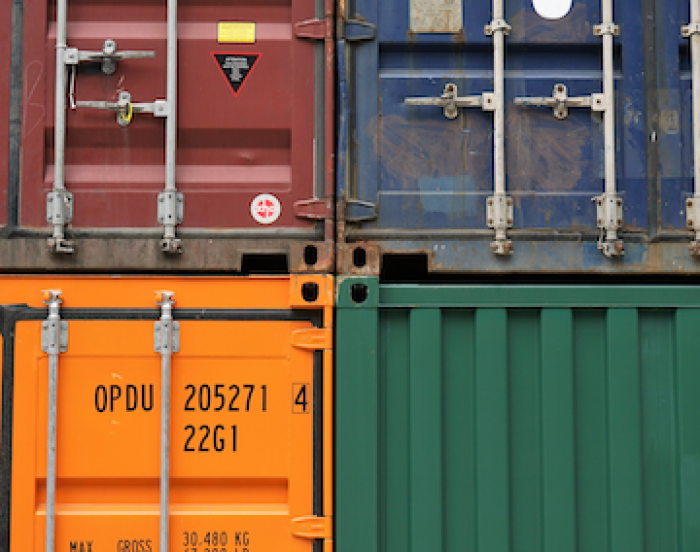3 things you might not have known about freight forwarders
The term “freight forwarding” can be the subject of some confusion with regard to what it actually entails, and what a freight forwarder does and does not do.
So, to start the New Year here at KTL, we thought we would revisit some of the essentials of freight forwarding for your benefit, drawing upon our hard-won and longstanding knowhow in this field.
A quick introduction to freight forwarding
An obvious first question to ask is: what is freight forwarding? There are various definitions, with Dictionary.com – for example – defining a freight forwarder as “a person or firm that arranges to pick up or deliver goods on instructions of a shipper or a consignee from or to a point by various necessary conveyances and common carriers.”
A simpler way of understanding freight forwarding, is that it is all about organising the entire process of transporting goods from one location to another, including across national borders.
A freight forwarding company, such as KTL, acts on behalf of importers and exporters, arranging for the transportation and storage of goods to keep shipments moving through the supply chain, until they reach their destination.
What are some of the most crucial things to realise about freight forwarding?
With our own in-depth freight forwarding expertise in the UK and Europe here at KTL, we are well-placed to put the spotlight on certain important aspects of the complicated and specialised freight forwarding process, that you may or may not have known about.
So, let’s take a look at some of them.
- Freight forwarders require a high level of knowledge and training
You only need to stop for a moment to consider what would happen to the global economy and society if the ability to transport goods around the world has suddenly halted, to realise just how responsible and sensitive a task freight forwarding is.
Accordingly, it should be no great surprise that individuals wishing to build a career in this field need to be extremely well-equipped in terms of specialist expertise. This includes in relation to such matters as international trade law, customs procedures, import duty, shipping methods, insurance, and various other aspects that may differ in certain ways across a variety of jurisdictions.
- Freight forwarders typically provide an exceedingly broad range of services
Another clue to the highly specialised and sensitive nature of freight forwarders’ operations, is the very wide range of support services that such organisations typically make available to the importers and exporters they serve.
Here at KTL, for instance, such services can extend to vital aspects like organising the warehousing and storage facilities that a client requires for their shipment, as well as help with freight insurance and customs clearance.
Services like these greatly help simplify the process of moving goods from one location to another as far as importers and exporters are concerned. As a consequence of this, they can always have the utmost confidence in their shipments arriving in a timely and trouble-free fashion, and in as-expected condition.
- Freight forwarders depend on strong and well-developed networks
Broad-based and in-depth industry knowledge is one thing, as is the offer of many different specialised services. However, in order to bring their clients the benefits for which they are renowned – including the most competitive shipping rates, and an assurance of transported shipments consistently reaching their destinations on time – it is also necessary for freight forwarding firms to maintain a very large network of contacts.
After all, the assignments that freight forwarders take on can vary immensely, and much the same can be said for the many different situations, problems, and risks that can arise when a shipment is being transported between locations.
A freight forwarding company that can call upon an extensive network of leading and reliable partners is one that can rise to all the challenges inherent to the freight forwarding process – thereby better ensuring the very greatest satisfaction for end customers and recipients.
Would you appreciate the opportunity to talk to our team at KTL about how we can provide the most professional and dependable logistics service for your own needs, making the most of our considerable freight forwarding expertise in the UK, Europe, and beyond? If so, please feel free to reach out to our experts today.
3 things you might not have known about freight forwarders
The term “freight forwarding” can be the subject of some confusion with regard to what it actually entails, and what a freight forwarder does and does not do.
So, to start the New Year here at KTL, we thought we would revisit some of the essentials of freight forwarding for your benefit, drawing upon our hard-won and longstanding knowhow in this field.
A quick introduction to freight forwarding
An obvious first question to ask is: what is freight forwarding? There are various definitions, with Dictionary.com – for example – defining a freight forwarder as “a person or firm that arranges to pick up or deliver goods on instructions of a shipper or a consignee from or to a point by various necessary conveyances and common carriers.”
A simpler way of understanding freight forwarding, is that it is all about organising the entire process of transporting goods from one location to another, including across national borders.
A freight forwarding company, such as KTL, acts on behalf of importers and exporters, arranging for the transportation and storage of goods to keep shipments moving through the supply chain, until they reach their destination.
What are some of the most crucial things to realise about freight forwarding?
With our own in-depth freight forwarding expertise in the UK and Europe here at KTL, we are well-placed to put the spotlight on certain important aspects of the complicated and specialised freight forwarding process, that you may or may not have known about.
So, let’s take a look at some of them.
- Freight forwarders require a high level of knowledge and training
You only need to stop for a moment to consider what would happen to the global economy and society if the ability to transport goods around the world has suddenly halted, to realise just how responsible and sensitive a task freight forwarding is.
Accordingly, it should be no great surprise that individuals wishing to build a career in this field need to be extremely well-equipped in terms of specialist expertise. This includes in relation to such matters as international trade law, customs procedures, import duty, shipping methods, insurance, and various other aspects that may differ in certain ways across a variety of jurisdictions.
- Freight forwarders typically provide an exceedingly broad range of services
Another clue to the highly specialised and sensitive nature of freight forwarders’ operations, is the very wide range of support services that such organisations typically make available to the importers and exporters they serve.
Here at KTL, for instance, such services can extend to vital aspects like organising the warehousing and storage facilities that a client requires for their shipment, as well as help with freight insurance and customs clearance.
Services like these greatly help simplify the process of moving goods from one location to another as far as importers and exporters are concerned. As a consequence of this, they can always have the utmost confidence in their shipments arriving in a timely and trouble-free fashion, and in as-expected condition.
- Freight forwarders depend on strong and well-developed networks
Broad-based and in-depth industry knowledge is one thing, as is the offer of many different specialised services. However, in order to bring their clients the benefits for which they are renowned – including the most competitive shipping rates, and an assurance of transported shipments consistently reaching their destinations on time – it is also necessary for freight forwarding firms to maintain a very large network of contacts.
After all, the assignments that freight forwarders take on can vary immensely, and much the same can be said for the many different situations, problems, and risks that can arise when a shipment is being transported between locations.
A freight forwarding company that can call upon an extensive network of leading and reliable partners is one that can rise to all the challenges inherent to the freight forwarding process – thereby better ensuring the very greatest satisfaction for end customers and recipients.
Would you appreciate the opportunity to talk to our team at KTL about how we can provide the most professional and dependable logistics service for your own needs, making the most of our considerable freight forwarding expertise in the UK, Europe, and beyond? If so, please feel free to reach out to our experts today.

















